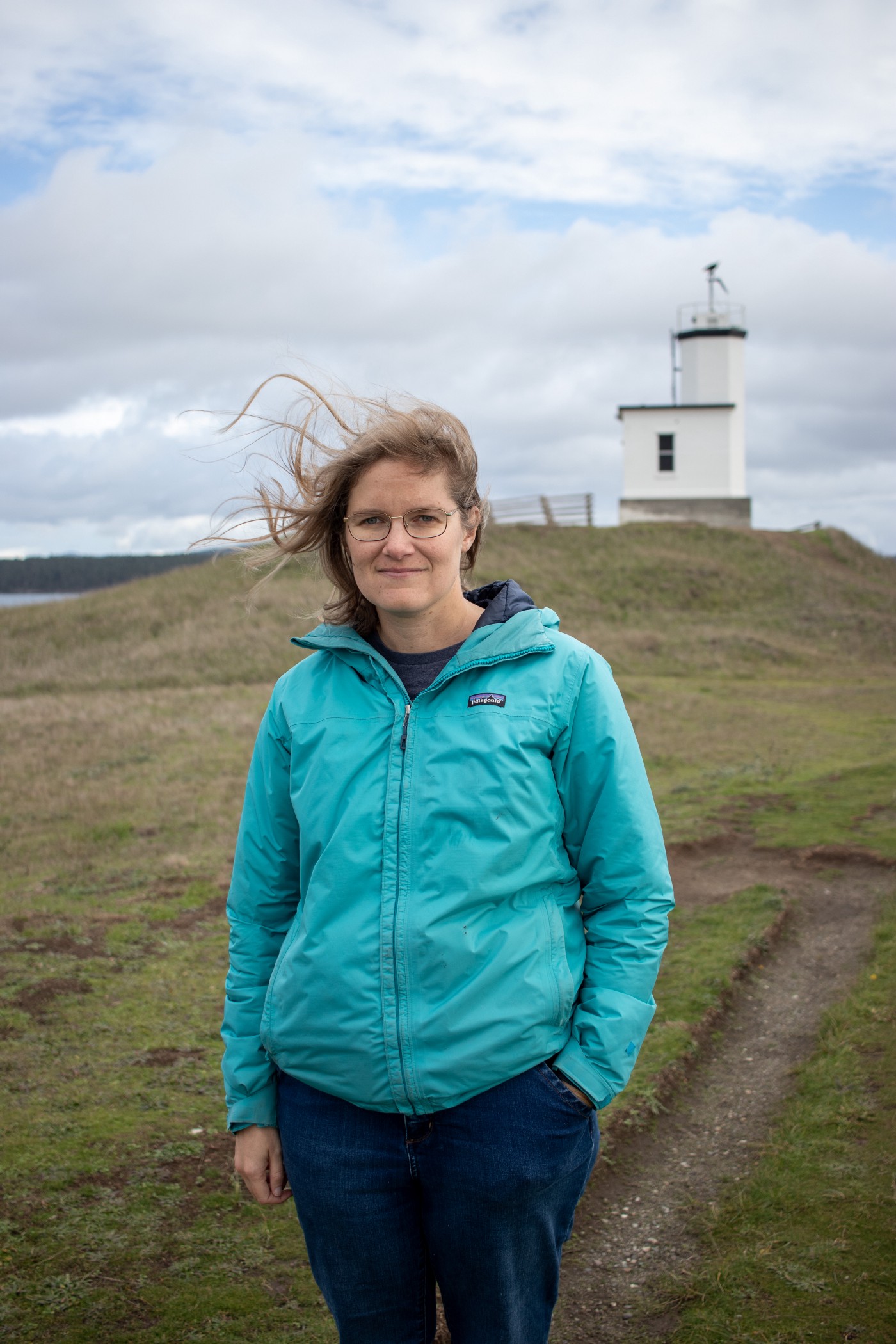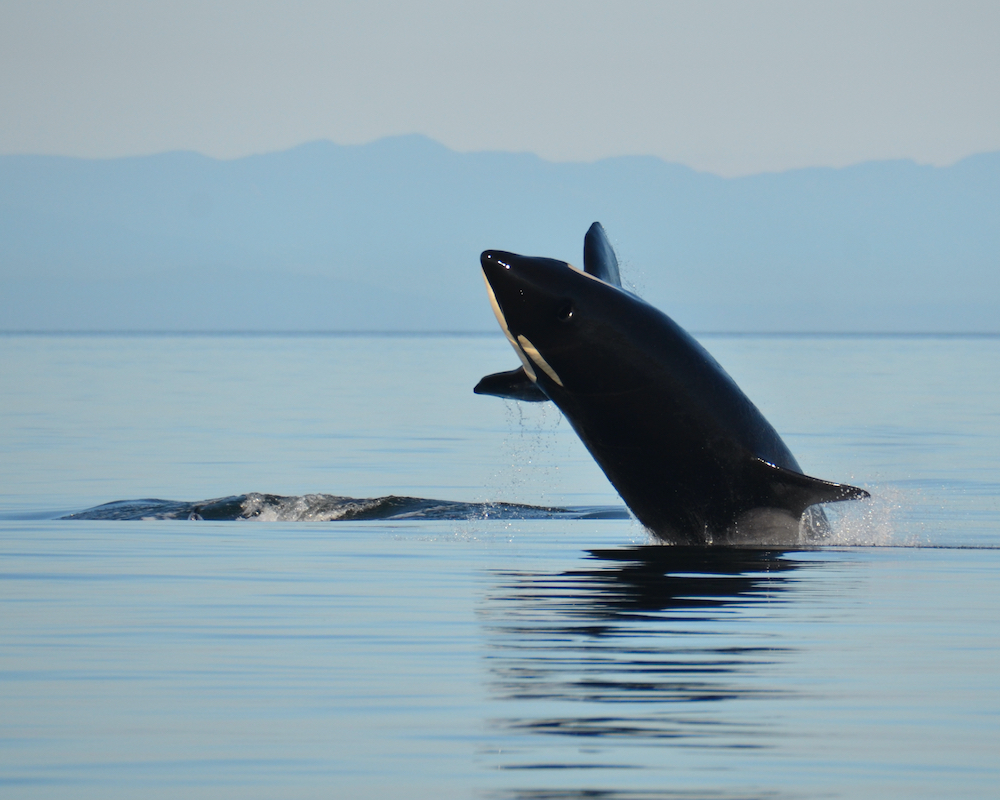PeerJ spoke to Monika Wieland Shields, Director of the Orca Behavior Institute, about her recently published PeerJ Life & Environment article 2018–2022 Southern Resident killer whale presence in the Salish Sea: continued shifts in habitat usage. The article was published as part of the IABO Hub. The IABO Hub is the publishing home of the International Association for Biological Oceanography, and features the latest biological oceanography research published by the members of IABO.
Can you tell us a bit about yourself?
My name is Monika Wieland Shields and I’m the co-founder and director of the non-profit Orca Behavior Institute (OBI) based on San Juan Island, Washington, USA. We conduct non-invasive behavioral and acoustic research on two populations of killer whales that frequent the regional inland waters known as the Salish Sea: the endangered fish-eating Southern Resient killer whales and the thriving mammal-eating Bigg’s killer whales. I have been studying, photographing, writing about, and advocating for these whales for over 20 years, and am the author of the 2019 book “Endangered Orcas: The Story of the Southern Residents”.
Can you briefly explain the research you published in PeerJ?
One of my long-term projects at OBI is tracking the shifting habitat usage of Southern Resident killer whales. Their seasonal usage of the Salish Sea has changed dramatically since their endangered listing in 2005, correlating with shifts in their preferred prey. This study provides an update on daily whale occurrence from 2018-2022 showing that these shifts are continuing to occur.
What did you discover and where?
The focus of this study is the inland waters of Washington State and British Columbia, a region known as the Salish Sea. This study shows that historic Southern Resident habitat use of this area has essentially reversed: they used to be most abundant here from May through September, but now occur more in the fall and winter months while their spring and summer presence has declined dramatically.
What was significant about your findings?
Protecting habitats is a key component of endangered species recovery, but to be biologically meaningful, any geographic or temporal protection zones need to overlap in space and time with how the target species is currently using the habitat, rather than based on historic trends. Both Canada and the US have implemented regional and seasonal protection measures aimed at supporting population recovery, but it is important that they are regularly updated to reflect shifting habitat usage by the Southern Residents. This study fills that data gap by demonstrating how these endangered orcas are utilizing the Salish Sea over the last 5 years and how that has shifted from previous trends.
How did you first hear about PeerJ, and what persuaded you to submit to us?
A colleague initially recommended PeerJ to me and it is a journal I have previously had a positive experience publishing in. I appreciate the open access nature of the journal, the reasonable publication fees, the quick turnaround times, and the transparent review process.
How was your experience publishing an article in the IABO hub?
It was exciting to be among the first submissions to the new IABO hub. I think these types of communities are great for bringing together scientists who may not otherwise comea cross one another’s work.
PeerJ Hubs are a new concept providing a sustainable Open Access solution for societies and research associations, with meaningful benefits for members. Whether your organization wants to launch its first publication, or is seeking a fully OA, funder-compliant option to complement your existing journals, a Hub could grow and develop your community, and make Open Access a more attainable and equitable option for your members.
Best of all, Hubs are free for organizations to launch!
If you are interested in discussing a Hub for your society or research association, please email [email protected] and we can send you further information.



